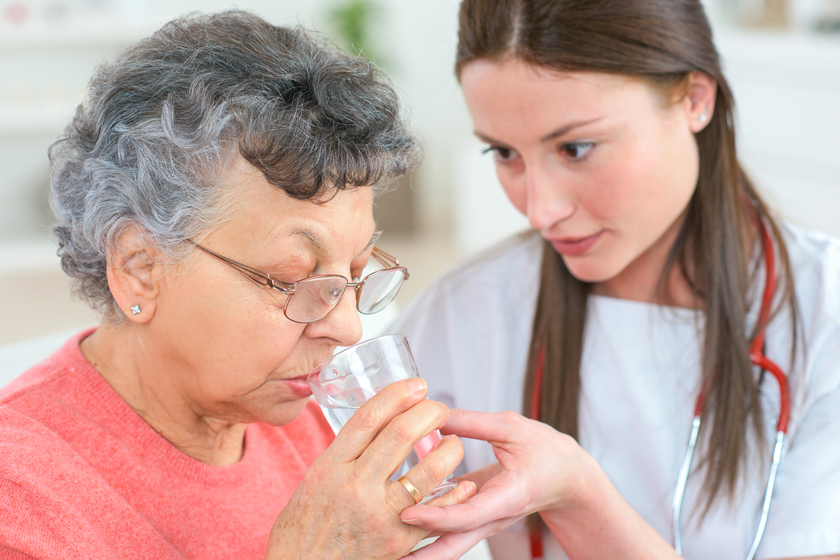Dry mouth in elderly individuals is not a rare occurrence. With age, the production of saliva can decrease, leading to a persistent feeling of dryness in the mouth. This condition, medically termed xerostomia, can cause difficulties in speaking, eating, and may lead to other oral health issues like gum disease and tooth decay. But worry not, several remedies exist to mitigate this discomfort and promote overall oral health. This article will explore four effective strategies to help you or your loved ones address this issue at home.
Stay Hydrated
Staying hydrated is a fundamental step in combating dry mouth. Dehydration is a common problem in the elderly, often due to inadequate fluid intake or as a side effect of certain medications. When the body is dehydrated, it prioritizes water for essential functions, leading to a reduction in saliva production.
The best way to stay hydrated is by drinking water throughout the day. Limiting consumption of caffeinated beverages and alcohol, both of which can dehydrate the body, is also advisable. Incorporating foods with high water content, like fruits and vegetables, can also contribute to maintaining hydration levels.
Chew Sugar-Free Gum or Use Sugar-Free Candies
The act of chewing or sucking on candies can stimulate the salivary glands and increase saliva production. However, it’s crucial to use sugar-free options to avoid contributing to tooth decay. These products are widely available in drugstores and online platforms.
Chewing gum or sucking on candies keeps the mouth active and stimulates the flow of saliva, relieving the feeling of dryness. Opt for products with xylitol, a sweetener that has been shown to have beneficial effects on oral health. Also, if gum or candies are not preferred, you can consider using oral moisturizing gels or sprays that have similar effects.
Keep Up with Oral Hygiene
Good oral hygiene is imperative for overall oral health, and this holds true especially when dealing with a dry mouth. Regular brushing and flossing can help prevent complications associated with xerostomia, such as gum disease and tooth decay.
Use a soft-bristle toothbrush and fluoride toothpaste, both of which can help protect your teeth without causing irritation. Regular use of alcohol-free mouthwash can also keep your mouth fresh and reduce the risk of infections. Importantly, regular dental check-ups are critical to detect and manage any oral health issues promptly.
Humidify Your Living Environment
A dry environment can exacerbate the feeling of dry mouth. Using a humidifier to add moisture to your living environment can help alleviate this issue. This can be particularly beneficial during winter months when indoor air tends to be drier due to heating systems.
A humidifier increases the moisture content in the air, providing relief from dryness not just in the mouth, but also in the throat and nasal passages. Moreover, it can improve skin hydration, providing added benefits.
In conclusion, managing dry mouth in the elderly is about implementing a series of small, consistent changes to daily routines. Hydration, oral hygiene, and the right environment can significantly alleviate discomfort and enhance quality of life. However, it’s important to remember that persistent dry mouth could be a symptom of underlying health issues.







